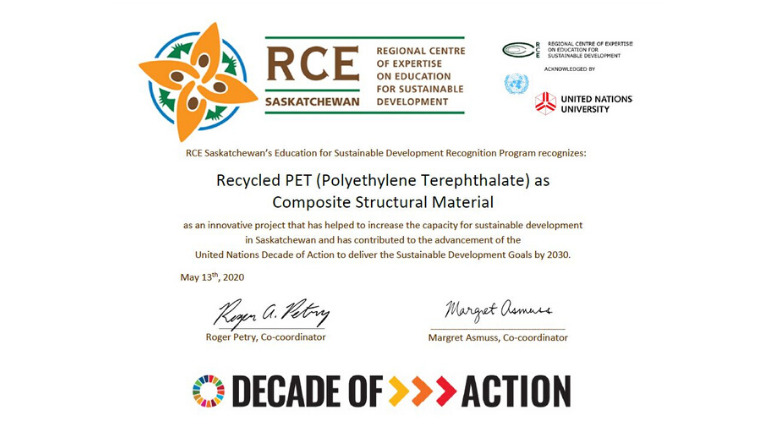
Although millions of plastic bottles are tossed into recycling bins each year, millions more end up in landfills and will not decompose for centuries.
Saskatchewan Polytechnic Engineering Design and Drafting Technology instructor Ramon Ricafort wants to change that.
Ricafort has embarked on an applied research project looking at ways to strengthen and reuse polyethylene terephthalate (PET), the plastic used in water and soft drink bottles. Because PET’s usage is limited once recycled, Ricafort believes his project could open the door to broader applications.
“The possibilities are endless for this project,” according to Ricafort. “You can create classroom chairs and tables entirely from hybrid plastics, a prosthetic leg that is durable and lightweight, a wheelchair made from 100 per cent hybrid plastic, and, who knows, a pedestrian bridge made from modified plastics that will never rot or corrode.”
In May, the project won a Regional Centre of Expertise (RCE) Saskatchewan Education for Sustainable Development Recognition Award. The annual awards recognize the achievements of individuals, organizations and groups making Saskatchewan more sustainable.
Ricafort, who teaches theory and design courses in the Engineering Design and Drafting Technology program at Moose Jaw Campus, explains that there are two phases to the project.
The first phase “is to find that sweet spot” of varying the mixture of two additives, calcium carbonate and/or stearic acid, which are used to strengthen the PET.
“The way it will be measured is to test the specimen(s) by tensile testing – extract the data and compare,” he points out.
To accomplish this and keep costs low, Ricafort built an “extruding machine that will melt the shredded (PET) plastics and convert it into a fluidic state and mold a dog bone-like specimen that will be subjected to a series of tensile tests.”
The second phase is designed “to apply the best outcome from phase one” in order to achieve real-world applications.
Ricafort, a civil/structural engineering professional, says a handful of students are involved with the project in hopes that “getting them into research will spark their curiosity and encourage them to be involved or conduct their own research studies.”
Ricafort is continuing his work on the project, which is funded by Sask Polytech’s Office of Applied Research and Innovation, this year. Through a collaborative applied research approach, the office helps entrepreneurs and organisations solve real-world problems and contribute to creating a stable, competitive economy.

